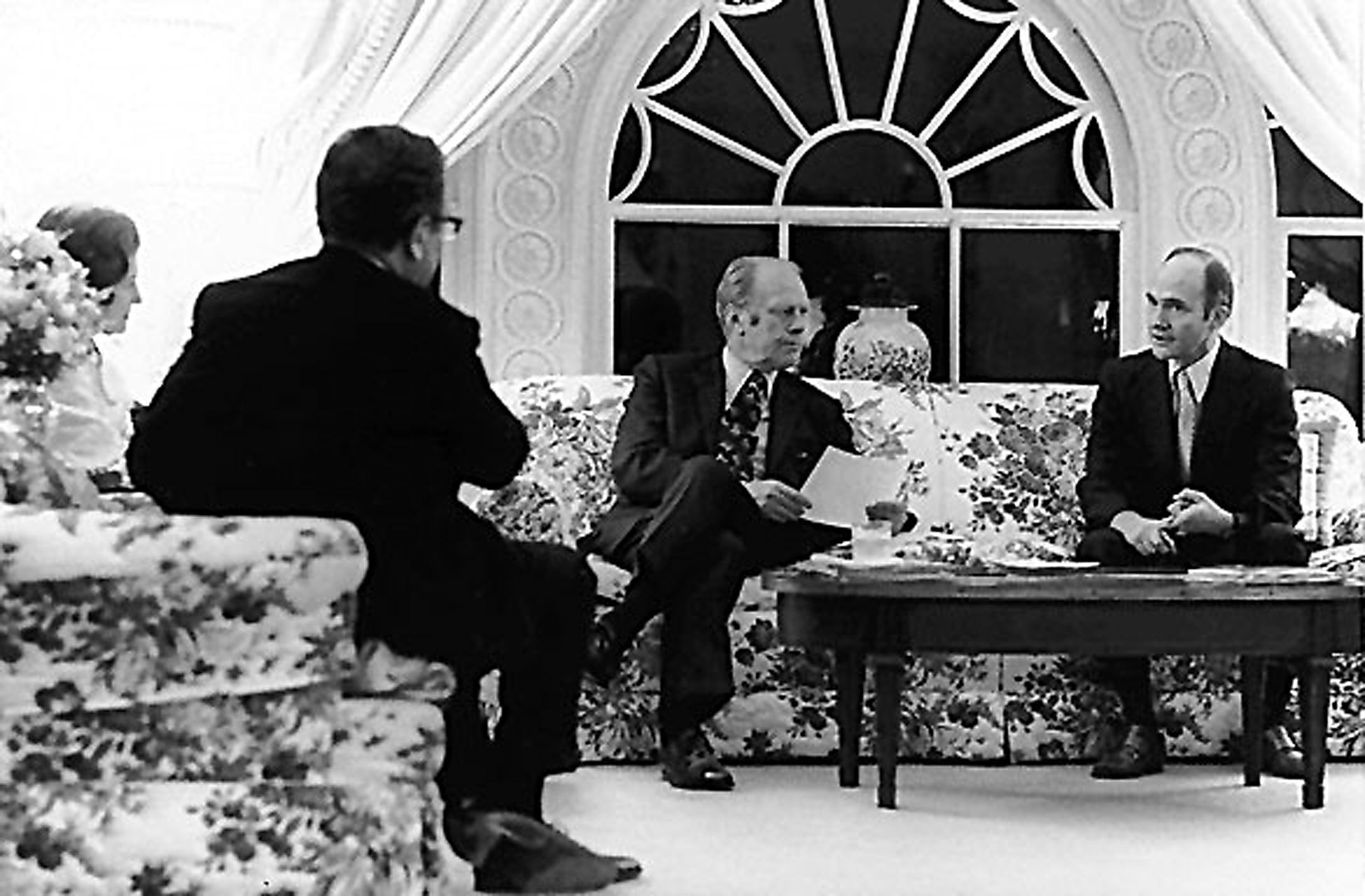Associates of former National Security Adviser Brent Scowcroft are calling out the White House for erroneously claiming the retired three-star Air Force general remained on active duty while holding that post under President Gerald Ford, an issue with newfound relevance as President Donald Trump has chosen a senior Army officer to fill this job in his administration.
The error appears to predate Monday's announcement that Lt. Gen. H.R. McMaster is in line to fill the vacancy left by Michael Flynn, whom the president asked to resign amid allegations Flynn, a retired three-star Army general, misled Vice President Mike Pence about his conversations with a Russian diplomat. While briefing the media after Trump and McMaster appeared together at the president's Mar-a-Lago resort in Florida, White House officials repeated the false claim about Scowcroft, resulting in its widespread publication.
"He was not on active duty as national security adviser," Scowcroft's spokeswoman Bettie Piluso told Military Times on Tuesday.
Others have flagged the inaccuracy as well.
Reached Tuesday, a White House spokesman was unable to address questions about the discrepancy.
In announcing Trump's choice of McMaster, the White House also highlighted — correctly — that another well-regarded three-star general, Colin Powell, served as national security adviser to President Ronald Reagan while still on active duty. Powell later picked up his fourth star and became chairman of the Joint Chiefs of Staff.

President Gerald Ford and Secretary of State Henry Kissinger, left, are briefed by National Security Adviser Brent Scowcroft on the evacuation of Saigon on April 28, 1975, at the White House in Washington, D.C.
Photo Credit: National Archives/AFP/Getty Images
Scowcroft, who also served as national security adviser to President George H.W. Bush, will turn 92 in March. The Republican made headlines last June when he endorsed Trump's rivalin the presidential election, Democrat Hillary Clinton.
Scowcroft's official military bioindicates he retired from the Air Force on Dec. 1, 1975, about a month after Ford tapped him to become national security adviser. His last assignment is listed as "deputy assistant to the president for national security affairs," the job he held until leaving active duty and replacing Henry Kissinger as national security adviser.
A review of congressional archives also confirms that Ford made the appointment Nov. 3, 1975, and that the Senate voted Dec. 15, 1975, to place Scowcroft on the military retired list.
"I have been frustrated with the White House and most of the mainstream media for disseminating this canard," said Scowcroft's biographer, Bartholomew Sparrow, who is a professor at the University of Texas at Austin. His book, titled "The Strategist: Brent Scowcroft and the Call of National Security," was published in 2015.
"Scowcroft did not wish to make his service an issue," Sparrow added, "so he retired."
Unlike Cabinet secretaries and those who fill other key departmental posts within a presidential administration, national security advisers do not require confirmation by the U.S. Senate. And while that's true for McMaster, the Senate will have to vote on whether to allow him to keep his three-star rank and move into the White House job.
As a highly experienced and respected senior officer, McMaster is not expected to encounter much resistance unless congressional Democrats, who are the minority, seek to prolong the process in an effort to undermine Trump. In fact, many observers have hailed the president's choice, touting McMaster's demonstrated strategic acumen, and his aptitude for sizing upthe national security challenges facing America and its closest allies.
Andrew deGrandpre is Military Times' senior editor and Pentagon bureau chief. On Twitter: @adegrandpre
.
With reporting by Defense News' Capitol Hill correspondent Joe Gould. On Twitter: @reporterjoe
.





